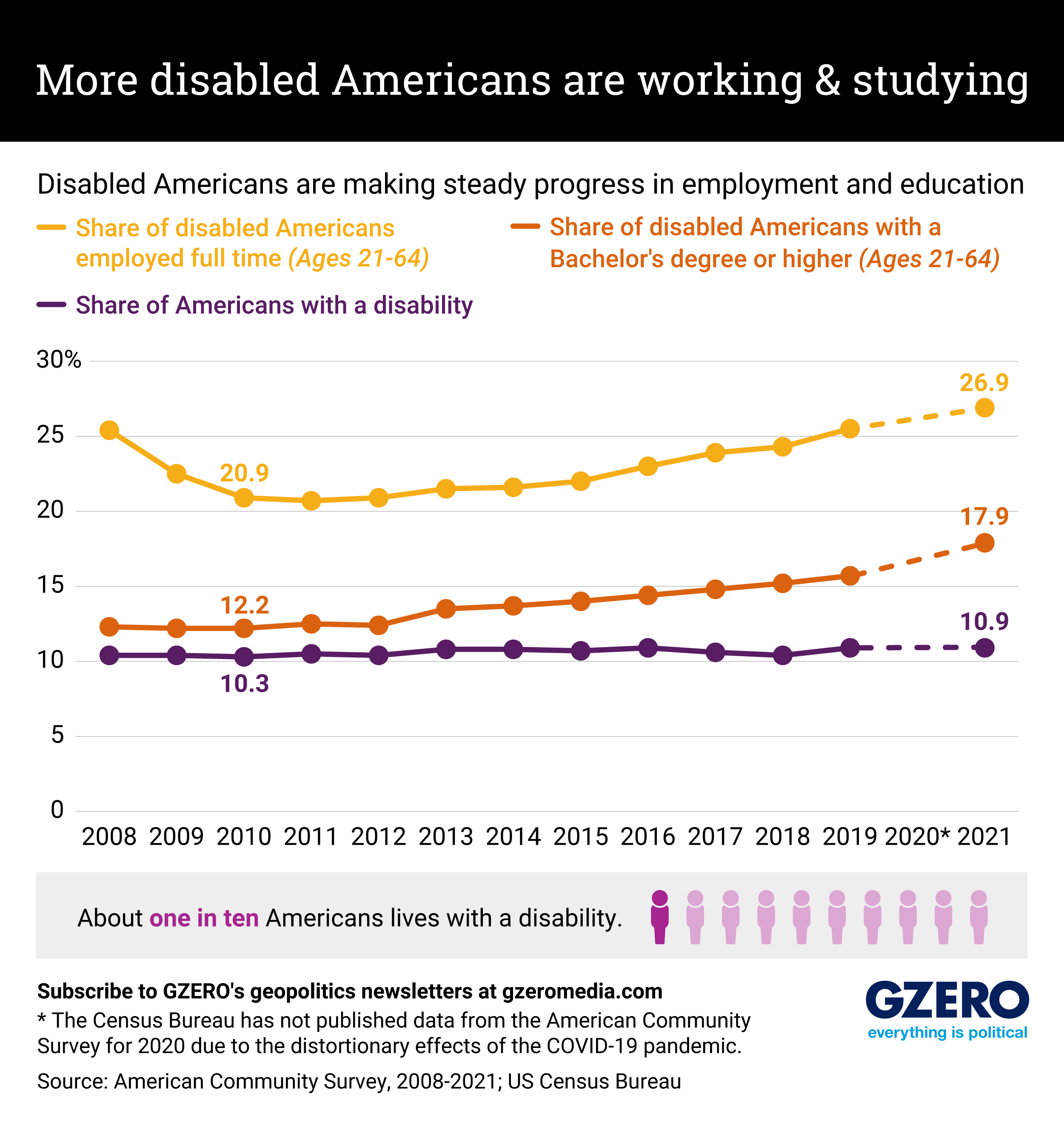How well does the world’s largest economy offer opportunities to those with disabilities? For National Disability Employment Awareness Month, we delved into the data from the Census Bureau’s annual American Community Survey to find out.
The good news? Over the last decade, the one in 10 Americans with physical, developmental, or intellectual disabilities have made major progress in finding full-time employment and graduating from university.
The share of Americans aged 21-64 with at least one disability who held full-time employment rose from 20.9% in 2010 to 26.9% in 2021. Simultaneously, the share of the same demographic who hold at least a Bachelor’s degree grew from 12.2% to 17.9%. Both are the highest numbers on record since comparable data collection began in 2008.
America’s progress on tertiary education for people with disabilities is particularly laudable given that disability rights activist Eddie Ndopu recently told GZERO that 98% of children with disabilities in the developing world “never see the inside of a classroom.”
But many systemic barriers remain. According to the Center for American Progress, people with disabilities are too often the employees of last resort – the first out in a recession and the last in during boom times – which CAP says “showcases the persistence of systemic ableism in the labor market.” Indeed, Census Bureau data shows that full-time employment rates for people with disabilities cratered during the 2008 financial crisis and did not recover until 2019 – about four years behind the job market for the general population.
Income-based limits on government benefits are also a problem. CAP says programs including Supplemental Security Income, Medicaid, and Social Security Disability Insurance — without which millions of people with disabilities and their families would have no way to afford the medical care and social work support they need — “cut off support or result in penalization if even the most basic economic security is reached.” That means Americans who are ready and willing to work full-time must deliberately seek part-time work to avoid earning money that would result in losing the support they depend on to survive.